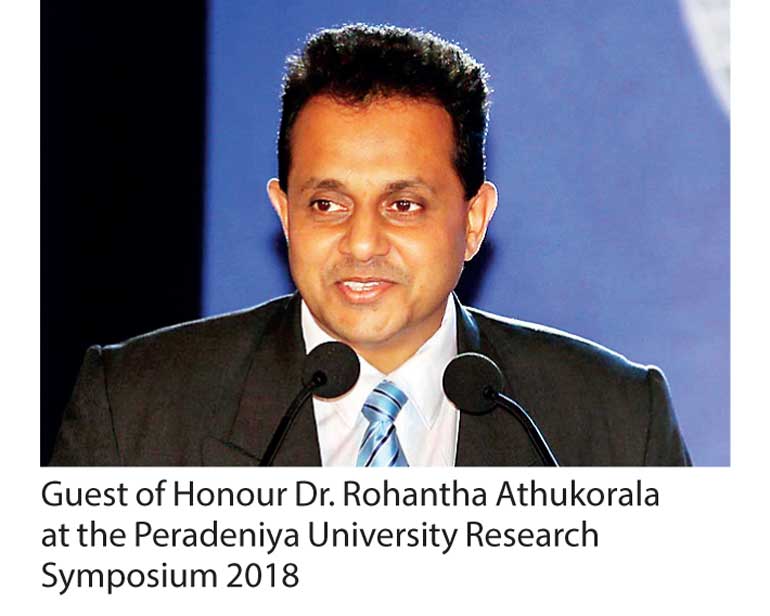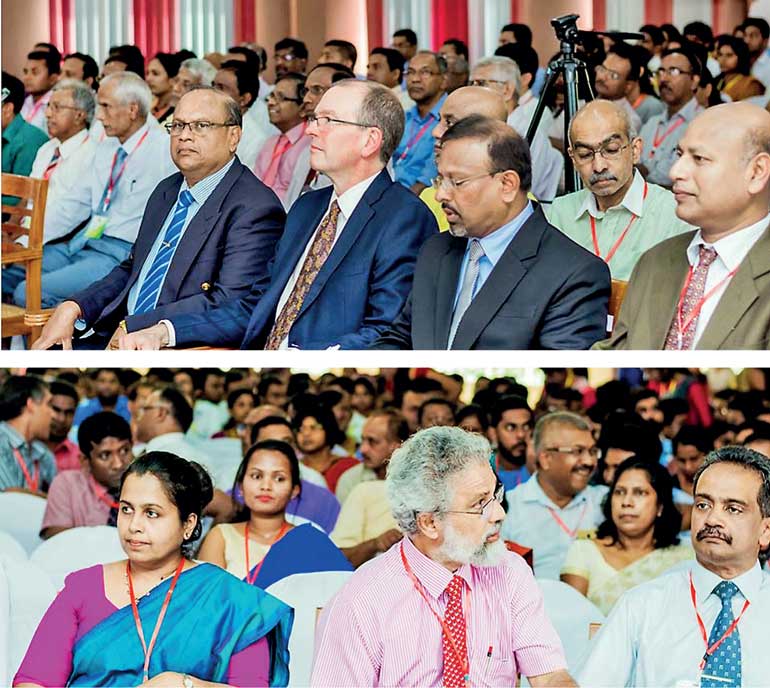Saturday Feb 21, 2026
Saturday Feb 21, 2026
Friday, 26 January 2018 00:00 - - {{hitsCtrl.values.hits}}

 Sri Lanka has a very poor record in new product development with just seven innovative products bringing only $ 0.1 billion to the Sri Lankan economy whilst countries like China have launched 76 new products attracting $ 331 billion and an Asian country like Thailand has introduced 70 new products fetching $ 21 billion dollars which is the key reason for Sri Lanka not being able to compete in the global market.
Sri Lanka has a very poor record in new product development with just seven innovative products bringing only $ 0.1 billion to the Sri Lankan economy whilst countries like China have launched 76 new products attracting $ 331 billion and an Asian country like Thailand has introduced 70 new products fetching $ 21 billion dollars which is the key reason for Sri Lanka not being able to compete in the global market.
The only way to resolve this is for the business world to build stronger links with the university system, according to Dr. Rohantha Athukorala, the Guest of Honour at the Research Symposium organised by the Agricultural Faculty of the University of Peradeniya.
The Chief Guest at the event was High Commissioner of Canada to Sri Lanka, David McKinnon. Faculty of Agriculture Dean Prof. Gamini Pushpakumara commented: “I totally endorse that the only way a country can become competitive is through innovation.”
Athukorala went on to explain that research conducted by Harvard University has revealed that developing countries have moved from apparel-driven export to machinery and electronics, with the best benchmark countries being China, Thailand and Vietnam. Sri Lanka has been stuck in an apparel ecosystem for the last 30 years. The university system must address this and then link with the private sector for commercialisation of the innovative idea, he said.
Sri Lanka registered exports of $ 11.4 billion in 2017, marginally beating the number of $ 11.1 billion which was the best performance the country has achieved. But what many forget is that in 1990 Sri Lanka, Vietnam and Bangladesh were at $ 2 billion. Today Vietnam is at $ 200 billion and Bangladesh is at $ 34 billion, which shows us how Sri Lanka has lost its way. Research symposiums like the one held today must be followed up with start-up venture capital companies bidding for innovations, opined Athukorala.
“The good news is that some of the ideas I heard today have a lot of potential to be made a market reality,” he said.
The $ 11.4 billion export performance in 2017 included a 20% growth in the tea industry and 40% in the fisheries sector which means that with higher value addition and branding it can be further increased, Athukorala stated, drawing from his experience as a former chairman of the Sri Lanka Export Development Board.
But he added that Sri Lanka did not have a demand issue. The problem in Sri Lanka was supply chain consistency and quality. Even with GSP plus the growth registered in 2017 was only 2%. This must move to double digits in 2018 even with the cut back by the US on GSP, he said.
“The growth in the ICT/BPO sector at 7.7% is a strong performance. Now Sri Lanka must focus on getting skilled labour into the market as unemployment at 4% means we cannot make Sri Lanka a $ 20 billion export business unless foreign workers are imported. Which is the next challenge not only for the export sector but tourism.”